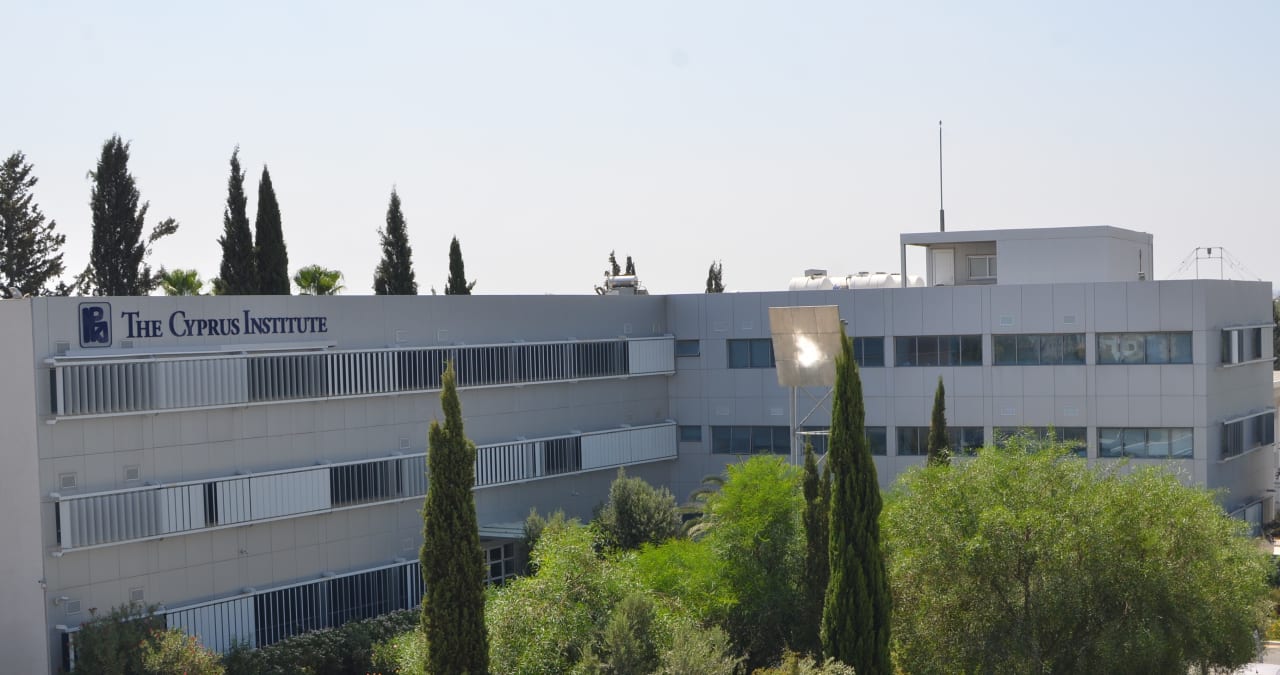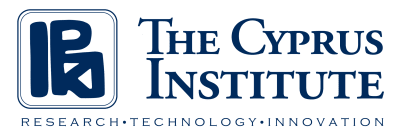
MSc in Digital Cultural Heritage
The Cyprus Institute

Key Information
Campus location
Nicosia, Cyprus
Languages
English
Study format
On-Campus
Duration
12 months
Pace
Full time
Tuition fees
EUR 5,400 / per year
Application deadline
01 May 2024*
Earliest start date
Oct 2024
* Early admissions (for EU and international students); Deadline: December 20 Regular admissions (for EU and international students); Deadline: May 1 Late admissions: Open until positions are filled for EU & international students who do not require a visa.
Introduction
This is a unique program in Cyprus and the region, which aims to provide new scientific knowledge that will enrich and enhance the research and academic careers of its participant students. Furthermore, the postgraduate program will equip students with a wide range of transferable practical skills that will give them a significant advantage in the current and future competitive labor market. The program’s goal is to prepare students for careers as scientists and experts in Cultural Heritage with a strong background in digital tools and scientific methods. Graduates of the program will be competitive to pursue work in the private or public sectors of Archaeology, Cultural Heritage Management, History, and Art Architecture, Museum Studies or the Study, Rehabilitation, and Management of the Historical Structured Environment.
Overall, digital technologies have become indispensable in the wider field of Heritage Sciences and Cultural Studies, with relevant digital data being produced rapidly by both public (archaeological and cultural organizations) and private entities (museums, cultural institutions) of the wider area. The Digital Cultural Heritage MSc course will offer a unique interdisciplinary approach to critical challenges in Cultural Heritage research, conservation, management, and public engagement through the effective use of digital methods and applications. Furthermore, the program emphasizes the methods and approaches applied to real problems in the field, in collaboration with key cultural heritage bodies on the island.
A key priority of the program is to expose students to the wide spectrum of digital applications in a range of fields, from the humanities as well as from the sciences. The uniqueness of the program draws from the interdisciplinary research culture of the Cyprus Institute (CyI). As such, the Digital Cultural Heritage MSc program aspires to engage scientists from across CyI’s research centers and groups, such as CaSToRC (Computation-based Science and Technology Research Center), EEWRC (Energy, Environment and Water Resource Center), Water Research and Management, The Unmanned Systems Research Laboratory (USRL), Climate Studies) as well as to include leading world experts from collaborating institutions (NCSA (National Center for Supercomputing Applications)/the University of Illinois at Urbana Champaign, Cornell University, C2RMF (Centre de Research et de Restauration des Musées des France), along with experts in Heritage Sciences from E-RIHS (the European Research Infrastructure for Heritage Science) and key figures in the Cultural Heritage management public administration of the region. STARC’s diverse scope of research projects provides a particularly rich context of research activities, which is expected to benefit participating students. For example, STARC is leading a Getty Foundation. Connecting Art Histories project provides an interdisciplinary study of historic Mediterranean cities and explores the role of heritage in the formation of civic and cultural identity. Other recent relevant projects are PERIsCOPE (Portal for hERItage buildingS integration into the COntemPorary built Environment), which aims to design and develop an innovative Building Information Modelling platform for the identification, classification, documentation, and renovation of heritage buildings, or IH-AT (Invisible Heritage - Analysis and Technology), which aims to design and develop an innovative portal comprised of reliable and efficient technology-ready tools for the visualization, documentation, and analysis of the UNESCO listed churches in the Troodos area in Cyprus.
Students in the program may consider and pursue continuing their studies towards a Cyprus Institute doctoral degree, which can be well integrated with their MSc work. Combining theoretical with practical training, the Master of Science in Digital Cultural Heritage (DCH) will provide a well-rounded education for students who wish to advance in the field of Cultural Heritage, defined in its broadest meaning, while engaging with advanced digital technologies and state-of-the-art research approaches.
Degree Awarded
Students who graduate from the program will be awarded an MSc degree. This is a 12-month / 90 ECTS program. The program is accredited by The Cyprus Agency of Quality Assurance and Accreditation in Higher Education.
The language of instruction and communication of The Cyprus Institute is English.
Accreditation and Recognition
Accreditation
All programs of study provided by The Cyprus Institute Graduate School are accredited by The Cyprus Agency of Quality Assurance and Accreditation in Higher Education (CYQAA) which is the competent authority responsible for ensuring the quality of higher education in Cyprus. CYQAA ensures quality assurance in higher education in Cyprus based on European Standards. It follows the standards and guidelines of the European Network for Quality Assurance (ENQA). Please refer to the table below for details.

| Degree | Evaluation-Accreditation Date |
| Ph.D. (Doctor of Philosophy) in Computational Sciences | February 2021 |
| Ph.D. (Doctor of Philosophy) in Energy, Environment, and Atmospheric Sciences | February 2021 |
| Ph.D. (Doctor of Philosophy) in Science and Technology in Archaeology and Cultural Heritage | June 2021 |
| MSc (Master of Science) in Environmental Sciences MSc/MPhil (Master or Science/Master of Philosophy) in Environmental Sciences | October 2017 |
| MSc (Master of Science) in Simulation and Data Science | June 2018 |
| MSc (Master of Science) in Digital Cultural Heritage | May 2019 |
Recognition
Bologna Second Cycle ---- The Master’s programs offered to adhere to the Bologna Process second cycle degrees.
Bologna Third Cycle ---- The Ph.D. degree programs adhere to the Bologna Process third cycle degrees.
ECTS ---- CyI uses the European Credit Transfer and Accumulation System (ECTS).
ERASMUS+ ---- CyI has been awarded an Erasmus Charter for Higher Education.
Horizon 2020 ---- CyI coordinates two Marie Skłodowska-Curie European Joint Doctorate (ITN-EJD) Programs. To date, CyI is the only Institution coordinating two out of the 40 ITN-EJD projects funded in Europe since 2014. This demonstrates that The Cyprus Institute is a European center of excellence in education and training.
Dual Degrees Joint Degrees ---- CyI has agreements with prestigious institutions from around the world for providing dual or joint degrees, such as the University of Illinois, University Paris-Saclay, University of Lund, University of RWTH Aachen, University of Wuppertal, University of Rome “Tor Vergata,” Hebrew University of Jerusalem, Humboldt University of Berlin (HUB) and others.
Admissions
Curriculum
Program Structure and Requirements
Term 1 (Fall Semester)
- 3 Mandatory Courses*
- 1 Elective Course
Term 2 (Spring Semester)
- 2 Mandatory Courses*
- 3 Elective Courses
Term 3 (Summer Period)
- Research Project including submission of Master's Thesis and Viva**
*DCH 404 (Mandatory Course) is split into two parts: Part A (5 ECTS) taken during Term 1 and Part B (5 ECTS) taken during Term 2.
**Students can potentially begin their Master's Research Project Report as early as the first term following a discussion and the approval of their Supervisor.
Program Courses
Mandatory Courses
- DCH 401 Arts, Humanities & Culture in the Digital Age
- DCH 402 Fundamentals of Digital Cultural Heritage
- DCH 403 Digital Innovation and Cultural Heritage
- DCH 404 Scientific Reading & Advanced Academic Writing (Part A & Part B)
Elective Courses
- DCH 416 3D Documentation & Scientific Visualization and Cultural Heritage Research
- DCH 417 The Data Life Cycle in Cultural Heritage
- DCH 418 Modelling and Simulation of Social & Cultural Phenomena
- DCH 419 Digital Curatorship & the Museum of the Future
- DCH 421 Community Engagement & Heritage Education in a Digital World
- DCH 422 Heritage Science in the Digital Age
- DCH 423 Synchrotron Radiation (SR)- Enabled Research in Heritage Sciences & Archaeology
- DCH 424 Environmental & Climate Perspectives on Cultural Heritage
Students who continue to a Ph.D. at The Cyprus Institute may have certain courses and possibly research requirements waived, resulting in a shorter Ph.D. program.
The Cyprus Institute Graduate School reserves the right to make any changes to the program upon approval of the Ministry of Education, Culture, Sport, and Youth.
Scholarships and Funding
Financial Support for Masters & Ph.D. Students
Dean’s Distinguished Scholarships cover full funding of tuition and registration fees and a generous stipend for living expenses in addition to an annual research allowance. The scholarship will be offered for the normal duration of the program, subject to an annual review of excellent performance.
Graduate School Scholarships may cover tuition fees and/or living expenses. The scholarships are awarded at the beginning of the Master's program or the beginning of the Ph.D. program for two years initially (and /or until advancement to Ph.D. candidacy) and then can be renewed for one or more years subject to excellent performance.
Gallery
Career Opportunities
Career Prospects
The program’s goal is to prepare students for careers as scientists and experts in Cultural Heritage with a strong background in the use of digital tools and scientific methods. Graduates of the program will be competitive to pursue work in the private or public sectors of Archaeology, Cultural Heritage Management, History, and Art Architecture, Museum Studies or the Study, Rehabilitation and Management of the Historical Structured Environment.
Qualified students may continue on to a Ph.D., which offers generous financial support options.